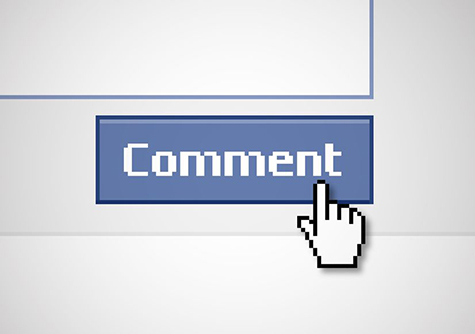
Anyone who has read my commentaries has heard my rants on engagement before. I know I’m not alone in my thoughts. On social media, I often see comments from those who respond to complaints with encouragements for people to get more involved in the community.
What concerns me is that people actually perceive online virtual conversation as true connectedness and engagement. Do not misunderstand me: given the choice between muted annoyance and participating in online forums, the latter is better… most of the time. But online comments, often posted without much thought or research, pale in terms of productive outcomes with actual in-person discussion.
This is the nightmare of government officials, both at local and other levels, who try to both manage the flow of communication and, more importantly, ascertain what the public actually wants.
Originally touted as the best thing since sliced bread, social media and other types of websites have created a challenge for governments. While everyone agrees that these forums can make it easier to hear voices that may not have been heard before, there are two problems to keep in mind: (1) anyone has the ability to connect, including those outside the constituency, and (2) most people don’t put much thought into their online comments.
Another problem is that leaders are still trying to assess virtual voices from a real-world perspective. In the past, if 50 people from a town the size of Niverville showed up at a council meeting, the issue at hand would have been considered a big deal. If 200 people had stopped a councillor on the street to ask about a problem, that problem obviously would have required greater scrutiny.
But if the government receives an online petition or sees an issue on Facebook with 200 comments, this may be the equivalent of 10 people showing up at a meeting. If our officials were to give virtual voices the same weight as people who show up in real life, it could result in the dangerous situation of allowing the loudest minority to dictate policy and direction.
Why is this a concern? Because our system—and in reality, our society as a whole—is not designed, and never will be designed, to make any one person happy at all times. Like finding that mythical faith community that matches all your views to perfection, it is an impossibility. Living in a community requires compromise and sacrifice, leaving room for us to reserve discontent only for our true non-negotiables.
With proper moderation, government tends to find a middle ground that likely appeals to few but is acceptable to most everyone.
Before the internet, real-life engagement came with important checks and balances. For example, if an issue was pressing enough for an individual to feel driven to attend a meeting, write a letter, or engage an official directly, that issue was truly important to them. This had the effect of keeping the issues of mild annoyance out of the spotlight.
At last check, Facebook has no warnings before people hit “post.” Perhaps it should have one that reads “Are you sure you want to proceed?” As such, we are granted the liberty to like, dislike, and rant about whatever grabs our attention at the moment. That is, there is no filter.
Sure, our busy world now gives people who cannot, or will not, engage in traditional ways the ability to have their voices heard. For the most part, this is positive. But when responding to issues, our leaders have a responsibility to apply their own filters and understand the context of the complaint. If they don’t, they run the risk of making extreme or hasty decisions. And while those decisions may satisfy some, the pendulum may have to swing again to pacify others.
Therefore, the onus is on us as responsible citizens to apply our own filters of decency… because I suspect social media, with its advertising and profit motive, will never apply it for us.



















